The FRI Seed Grant Competition invites proposals from UC Davis faculty for collaborative projects that use feminist approaches to engage in transformative, trans-disciplinary research. Seed grant funding may be used to develop a promising idea, pilot-test a method, gather preliminary data, further an ongoing collaboration, or otherwise provide support that will improve a project’s chance of receiving external funding. Proposals are encouraged that involve collaboration with faculty from more than one college/school.
2018-2019 Seed Grant Recipients
A Community-based Feminist Approach to Examining Exposure and Assessing Community Health: Addressing Environmental Health Concerns of Community Residents of Kettleman City, CA
 Project Leaders: Clare Cannon (Human Ecology), Julia Wentzel (International Agricultural Development), Greenaction for Environmental Health and Justice, El Pueblo Para el Aire y Agua Limpia de Kettleman City.
Project Leaders: Clare Cannon (Human Ecology), Julia Wentzel (International Agricultural Development), Greenaction for Environmental Health and Justice, El Pueblo Para el Aire y Agua Limpia de Kettleman City.
Project Description: This research applies feminist theories and methods to investigate key linkages between environmental exposure and human health in a disadvantaged, rural community utilizing an innovative participatory process and mixed-method experimental design. The purpose of this study is to ascertain environmental exposure of the community of Kettleman City, CA relative to California’s; establish feasibility for a larger study; and to produce a feminist model for community engaged science that informs environmental policy and regulation. Guided by theories of intersectionality and working with community partners, we aim to conduct an environmental health survey and in-depth interviews with Kettleman City residents to identify important relationships among intersectional axes of oppression, space, health outcomes, and environmental risks.
The Intersection of Gender, Ethnic and Scientific Identity and Retention of Latina Students in STEM Majors at UC Davis
 Project Leaders: Natalia Caporale (Neurobiology, Physiology, and Behavior) and Lina R. Méndez (Center for Chicanx and Latinx Academic Student Success)
Project Leaders: Natalia Caporale (Neurobiology, Physiology, and Behavior) and Lina R. Méndez (Center for Chicanx and Latinx Academic Student Success)
Project Description: Despite significant efforts over the last 30 years, women still comprise only 24% of the U.S. STEM workforce. At the college level, 35.1% of STEM degrees go to women, with Latinas comprising a mere 3.5% in 2010. Our study will identify factors that promote Latina success in STEM majors, as well as barriers and challenges Latinas face in college through the combined lens of feminist and critical race theory. We will focus on the effects of science identity, ethnicity and gender, and the intersectionality of these factors. In this study, we will conduct focus groups and interviews of UC Davis Latinas who are currently in STEM (in good academic standing and in academic probation) and those who decided to switch out of STEM majors. This study will provide new data on the interactions between gender, ethnicity and identity and retention in STEM that could be used to inform institutional policies that encourage and help retain Latinas in STEM; a goal that is particularly important as UC Davis achieves the status of Hispanic Serving Institution.
Exploring the Rise of Domestic Violence in California: Trends and Risk Factors
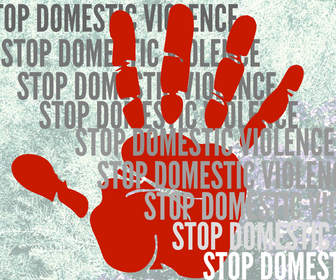 Project Leaders: Alvaro Medel-Herrero (Center for Health and the Environment, UC Davis), Alexander Aue (Statistics, UC Davis), Suzette Smiley-Jewell (Center for Neuroscience, UC Davis), Martha Shumway (School of Medicine, UCSF), Dennis Reidy (Division of Violence Prevention, Centers for Disease Control & Prevention), Nicole Kravitz-Wirtz (Violence Prevention Research Program (VPRP), UC Davis), Amy Bonomi (Human Development and Family Studies, Michigan State University)
Project Leaders: Alvaro Medel-Herrero (Center for Health and the Environment, UC Davis), Alexander Aue (Statistics, UC Davis), Suzette Smiley-Jewell (Center for Neuroscience, UC Davis), Martha Shumway (School of Medicine, UCSF), Dennis Reidy (Division of Violence Prevention, Centers for Disease Control & Prevention), Nicole Kravitz-Wirtz (Violence Prevention Research Program (VPRP), UC Davis), Amy Bonomi (Human Development and Family Studies, Michigan State University)
Project Description: The 2007 economic downturn led to a dramatic increase in domestic violence-related hospitalizations in California. This trend has not with the end of the recession, but continues to the present. The proposed investigation is an exploratory research project addressing recent trends of hospitalizations and deaths involving domestic violence. We intend to identify current trends and risk factors of domestic violence and target populations in California residents with, or at risk for, intimate partner violence. Specific goals include identifying target populations impacted by domestic violence mortality and requiring increased health services associated with domestic violence.
“To See the Good in Me You Have to See the Hood in Me”: Black Girl Artivists and Oral History
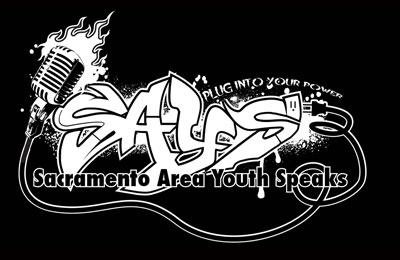 Project Leaders: Vajra Watson (Office of Research and Policy for Equity), Jeanelle K. Hope (Cultural Studies)
Project Leaders: Vajra Watson (Office of Research and Policy for Equity), Jeanelle K. Hope (Cultural Studies)
Project Description: In 2016, Sacramento Area Youth Speaks (SAYS) piloted a yearlong elective course at a South Sacramento high school—Project H.E.A.L. (Health, Education, Activism, & Leadership)—that aimed to work to address the issues Black girls were confronted with in their homes, communities, and, subsequently, in school. This classroom is a space for Black girls to tease through their trauma, providing them the opportunity to discuss multiple forms of violence—physical, sexual, and emotional—as well as income inequality and health disparities. Most importantly, this classroom empowers Black Girls to resist and imagine radically new futures. This project aims to better understand what impact intergenerational mentorship and storytelling have on Black girls and other girls of color disproportionately exposed to violence and trauma by introducing one period of Project H.E.A.L to oral history. In collaboration with a UCD graduate student, and employing youth-led participatory active research (YPAR), we will introduce 15 Black girls to oral history as a means to confront their trauma through storytelling, preserve their local history, and become Change makers in their communities.
2017-2018 Seed Grant Recipients
Feminist Activist Scientists and Their Archives
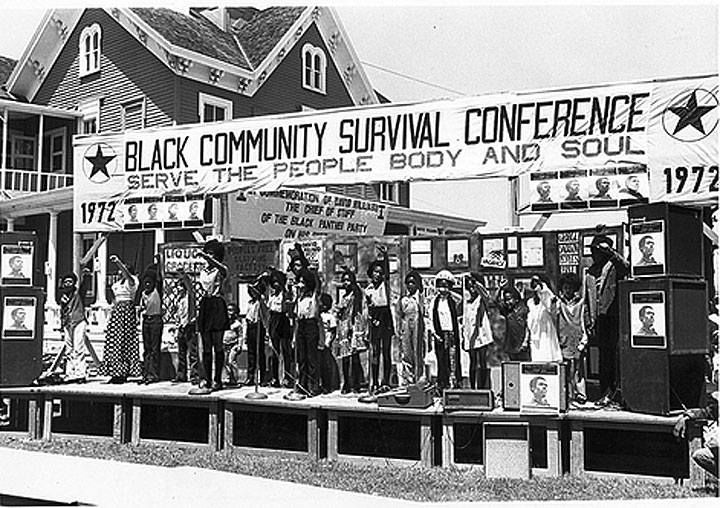 Project Leaders: Sara Giordano and Rana Jaleel (Gender, Sexuality, and Women’s Studies)
Project Leaders: Sara Giordano and Rana Jaleel (Gender, Sexuality, and Women’s Studies)
Project Description: Feminist activists have impacted the course of scientific research and what counts as scientific knowledge. Examples include Black Panther efforts to provide community healthcare, ACT-UP activists changing the course of the NIH, women the world over protesting corporate destruction of indigenous lands, and mostly forgotten feminist attempts to reproduce without men. This project is dedicated to unearthing past efforts and developing methodological practices to document how people have engaged with scientific production and to integrate that knowledge within future scientific endeavors. We will work to build and house alternative archives for feminist and other people-based public health, environmental, and science initiatives.
Linking Lack of Sanitation, Water, Menstrual Hygiene and Energy to Gender Disparity in Rural Kenya
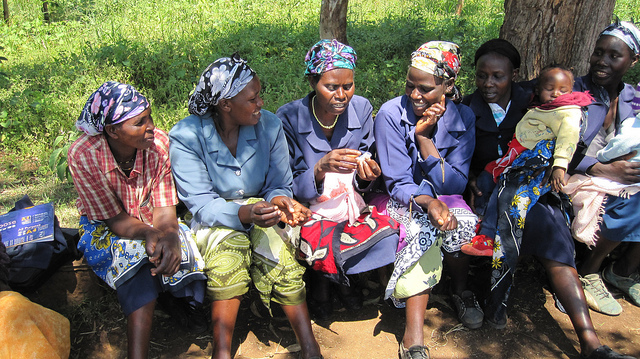 Project Leader: Maureen Njoki Kinyua (Civil & Environmental Engineering)
Project Leader: Maureen Njoki Kinyua (Civil & Environmental Engineering)
Project Description: This project examines the intersections of water, gender, health, education, the environment and agriculture using feminist theory to recognize that a woman’s or girl’s quality of life in rural Sub Saharan Africa (SSA) is positioned within a global social and environmental context. This project will evaluate the effect of waste characteristics and operating conditions on methane production and pathogen inactivation in a latrine-anaerobic digester system treating feces, urine and menstrual blood. This project brings together social science and engineering to address issues of public health, especially for women in a culturally and sustainable way, and contributes to the scientific understanding of the link between waste mismanagement, environmental degradation, and gender disparity.
Women Immigrants and Access to Citizenship
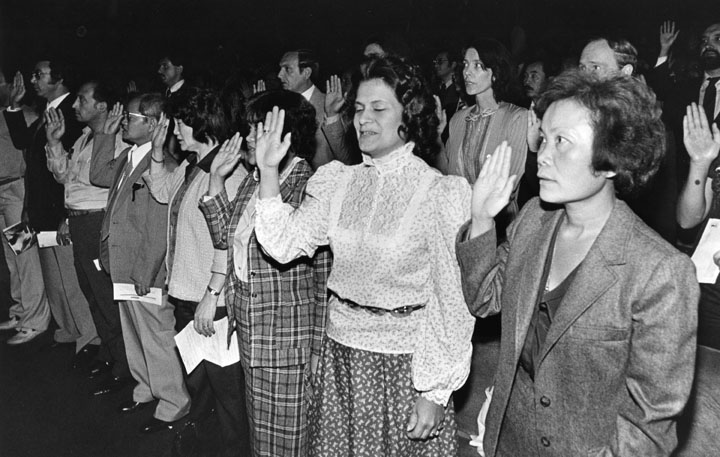 Project Leader: Jeannette Money (Political Science)
Project Leader: Jeannette Money (Political Science)
Project Description: Why do women migrants choose to apply for citizenship in the host state? Citizenship permits immigrants to participate in the host society’s political processes and to express their own political demands. This project hypothesizes that demand for citizenship is a function of two sets of variables: the degree of difficulty in obtaining naturalization in the host state, and explanatory factors like gender roles in the home society and the host society. Women are central to the family in all societies so their access to and choice of citizenship is likely to be important to the immigrant family’s ability to integrate.
Interdisciplinary Comparative Feminist Research on Discourses of Gender and Adolescence
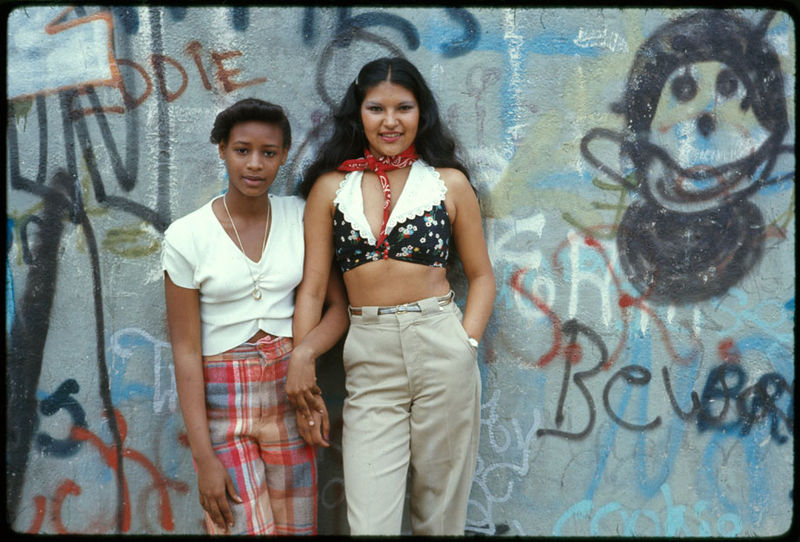 Project Leaders: Liz Constable (Gender, Sexuality, and Women’s Studies), Corrie Decker (History), and Jenny Kaminer (Russian)
Project Leaders: Liz Constable (Gender, Sexuality, and Women’s Studies), Corrie Decker (History), and Jenny Kaminer (Russian)
Project Description: This collaborative, comparative project contributes to a growing body of interdisciplinary scholarship on figurations of adolescence – the time when teenagers in many societies experience most acutely the existence of contradictory discourses about gender identity and sexual subjectivity. What roles do discourses of youth, gender, and sexuality play in public policies, in social practices, in cultural narratives, and in the lives of young people, in past and present globalizing movements? We propose to conduct a feminist analysis of these discourses within a comparative transnational and transcolonial framework.
Empowerment or Further Assault on Female Autonomy? Exploring Issues of Race, Class, and Power in Post-Sexual Assault HIV Prevention
 Project Leader: Jessica Draughon Moret (School of Nursing)
Project Leader: Jessica Draughon Moret (School of Nursing)
Project Description: In addition to the trauma of sexual assault, women may experience additional trauma through their encounters with healthcare providers for post-sexual assault care. Post-sexual assault care includes HIV prevention treatment, yet many women do not receive this treatment. This project builds off a quantitative parent study examining factors theoretically associated with accepting and adhering to post-sexual assault HIV prevention treatment, and focuses on how issues of race, class, and power have impacted whether post-sexual assault prevention treatment was offered, accepted, and completed. The results of this study will inform the creation of an intervention to improve HIV prevention treatment follow-up as the continuation of a developing program of research.
Women’s Work: Feminist Perspectives on Food Waste, Sustainability, and Environmental Design
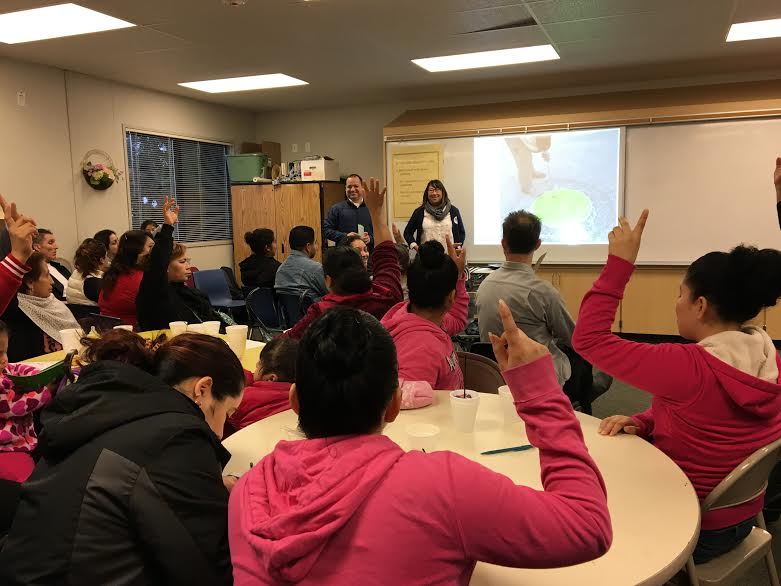 Project Leaders: Claire Napawan (Landscape Architecture) and Sahoko Yui (Geography)
Project Leaders: Claire Napawan (Landscape Architecture) and Sahoko Yui (Geography)
Project Description: By applying feminist perspectives to environmental design, our research addresses food waste management as an important component of sustainability efforts and to elevate the significance of women’s work. Global food waste is the third largest carbon emitter and can result from a range of household and cultural practices (as well as the result of large‐scale agricultural systems). Environmental design has neglected to address domestic practice (and women’s role related to it) as a potential opportunity for improving community sustainability. This project studies the traditional domestic practices that fall predominantly within women’s purview, and draws linkages between it, cultural practices, food waste management, and community sustainability.
2016-2017 Seed Grant Recipients
Developing Feminist Frameworks for Ethics of Genome Modification
 Project leaders: Lisa Ikemoto (Law; UCD Health System Bioethics Program; UCD Center for Science and Innovation Studies)
, Rana M. Jaleel, (Gender, Sexuality and Women’s Studies), Meaghan O’Keefe (Religious Studies), and Sarah Perrault (University Writing Program)
Project leaders: Lisa Ikemoto (Law; UCD Health System Bioethics Program; UCD Center for Science and Innovation Studies)
, Rana M. Jaleel, (Gender, Sexuality and Women’s Studies), Meaghan O’Keefe (Religious Studies), and Sarah Perrault (University Writing Program)
Project description: CRISPR/Cas-9, the powerful new gene modification technology, has spurred debate about human germline modification. Applicable to any living species, it has sparked debate over issues ranging from patient rights to environmental justice. This debate has focused heavily on potential cures, risks, and the implications of irreversible changes in future humans. This working group will develop feminist frameworks for the ethics of genome modification, and examine—among other things—CRISPR/Cas-9's role in assisted reproductive technology (ART), its impact in the Global South, and communication ethics.
Gender Distribution in Agricultural and Environmental Sciences: Factors Influencing Major Choices by Women and Under-represented Minorities
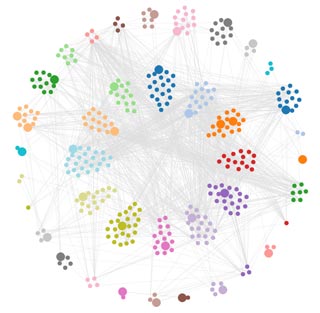 Project leaders: Susan Ebeler (Viticulture & Enology and Associate Dean Undergraduate Academic Programs, CA&ES Effectiveness), Patsy Eubanks Owens (Human Ecology), Astrid Volder (Plant Sciences), Marco Molinaro (Assistant Vice Provost for Educational Effectiveness)
Project leaders: Susan Ebeler (Viticulture & Enology and Associate Dean Undergraduate Academic Programs, CA&ES Effectiveness), Patsy Eubanks Owens (Human Ecology), Astrid Volder (Plant Sciences), Marco Molinaro (Assistant Vice Provost for Educational Effectiveness)
Project description: Enrollment of women in higher education has increased over the past 50 year, however, significant inequities in gender distribution remain across individual majors. Under represented minority (URM) students are typically under-represented in higher education and are proportionally under-represented in most STEM fields. These trends are further exacerbated for minority women. In this project we propose to evaluate the disparities in gender and under represented populations within the agricultural, environmental, and human/social sciences in the College of Agricultural and Environmental Sciences (CA&ES). An initial analysis of enrollment data indicates that there are large discrepancies in representation of URM females in the different CA&ES majors, however there is little information on how URM students select majors. We propose to conduct focus groups with high school students and UC Davis CA&ES students to understand the factors influencing their major-selection decisions. By understanding factors that influence major choice, we hope to identify approaches to increase participation of women and URM students in STEM fields.
Teamwork in the Hospital: Gendered and Racialized Epistemologies at the Bedside
 Project leaders: Ester Carolina Apesoa-Varano (Betty Irene Moore School of Nursing), Vicki Smith (Department of Sociology), Ming-Cheng Lo (Department of Sociology)
Project leaders: Ester Carolina Apesoa-Varano (Betty Irene Moore School of Nursing), Vicki Smith (Department of Sociology), Ming-Cheng Lo (Department of Sociology)
Project description: Does teamwork advance a more egalitarian ethos and set of practices at the bedside whereby historically marginalized gendered and racialized epistemologies contribute to the course of patient care? Further, how do organizational structures relate to these teamwork micro-level processes at the bedside? We examine how gendered and racialized/ethnicized epistemologies of care are enacted at the bedside and seek to understand how larger gendered and racialized organizational and cultural dynamics are related to the micro-level interactions of practitioners in a care team. This project involves a feminist methodological approach that integrates interviews, ethnography, and participant self-narratives as central to understanding theexperiences of hospital practitioners under the teamwork model.
Climate Change, Farmworker Women and Their Families
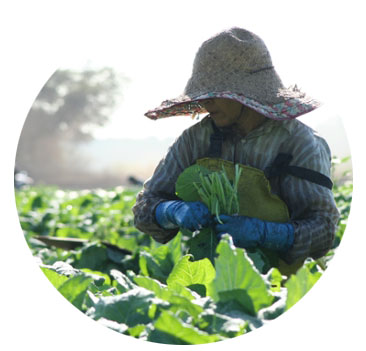 Project leaders: Yvette Flores (Chicana/o Studies), Kyaw Tha Paw U (Land, Air and Water Resources), M. Anne Visser (Human Ecology; Community and Regional Development), Mary Lou de Leon Siantz (School of Nursing)
Project leaders: Yvette Flores (Chicana/o Studies), Kyaw Tha Paw U (Land, Air and Water Resources), M. Anne Visser (Human Ecology; Community and Regional Development), Mary Lou de Leon Siantz (School of Nursing)
Project description: California’s climate change effects on farmworkers have not played a prominent role in the state’s response to the problem. The potential effects of climate change,such as increased drought frequency and duration and higher temperature extremes, on the farmworker women and families, their social structure, and physical and psychological stresses on them, has been only rarely studied. We propose a study on climate change’s potential effects on farmworker women and their families: How serious are the potential challenges? What are the specific issues unique to Mexican immigrant, Chicana and other minority women farmworkers that may be unrecognized or ignored in studies about the ramifications of climate change?